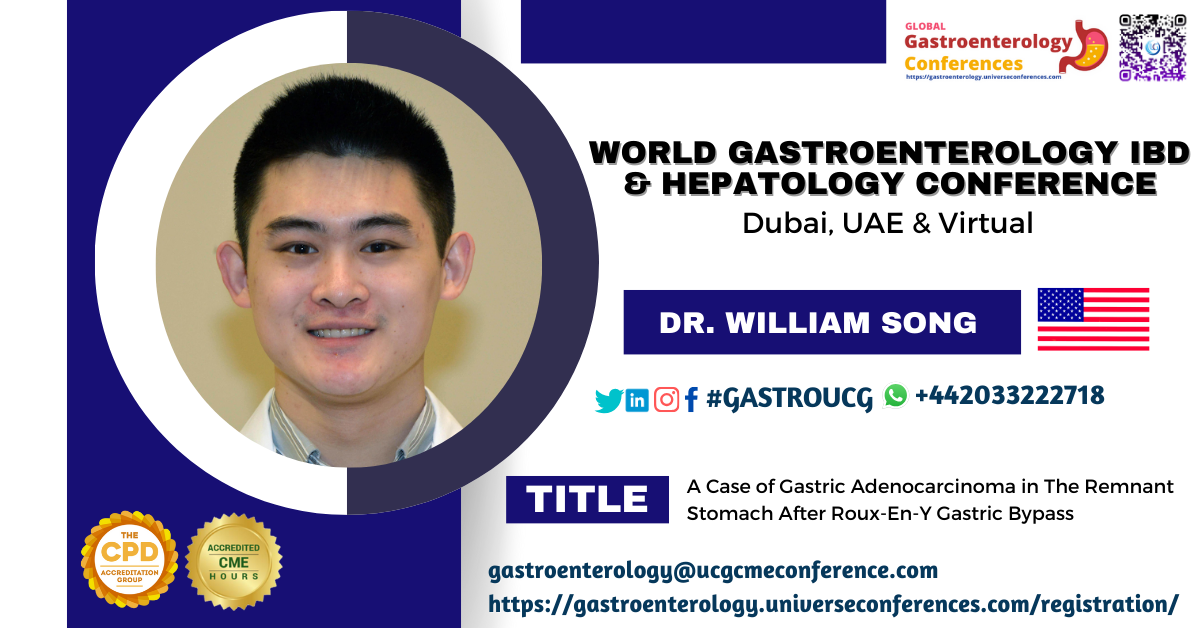CALL FOR ABSTRACT 14THGHUCG TRACK 25: GUT MICROBIME & PROBIOTICS INTERACTION
Gut Microbiome & Probiotics Interaction
The term gut microbiome is used to describe the large array of symbiotic bacteria in the human gastrointestinal tract and their collective genetic interactions. Recent research indicates that the gut micro biome performs a variety of crucial biochemical tasks for the host, and micro biome abnormalities are linked to a wide range of human disease processes. Systems biology approaches based on next-generation ‘omics’ technologies can now describe the gut micro biome at a detailed genetic and functional (transcriptomic, proteomic, and metabolic) level, providing new insights into the importance of the gut micro biome to human health, and they can map micro biome variation between species, individuals, and populations. This has shown the significance of the gut micro biome in the pathogenesis of a variety of systemic disease states, such as obesity and cardiovascular disease, and intestinal disorders, such as inflammatory bowel disease. Thus, understanding micro biome activity is vital for the creation of future personalised healthcare strategies and may provide new drug development targets.

How do probiotics influence the micro biome of the gut?
Recent data demonstrates that probiotics have important roles in the composition of gut micro biota, which can block the colonisation of pathogenic bacteria in the intestine, assist the host maintain a healthy intestinal mucosa protective layer, and boost the host’s immune system.
The Gut Immunology test examines the immune response in the gut by assessing two biomarkers, calprotectin and eosinophil protein X, using a simple stool sample collected at home (EPX). Calprotectin is extremely sensitive for assessing inflammation in the gastrointestinal tract and distinguishing between IBS and IBD. EPX is secreted as part of the immunological response to injury to the intestinal lining, such as that caused by a food allergy.
Do probiotics alter the human micro biome?
Probiotic foods include living bacteria that may further affect the microbiome of an individual. Included in this category are fermented foods such as kefir, yoghurt with live active cultures, pickled vegetables, tempeh, kombucha tea, kimchi, miso, and sauerkraut.
SUB TRACK:
GUT immunology, stroke, acute calculus cholecystitis, High blood pressure, Nonalcoholic fatty liver disease, Sleep apnea, Type 2 diabetes, Accidental Bowel Leakage, Anal Fissure, Appendicitis, Bile Duct Cancer, Blood in Stool, C. diff, Cholera, Cirrhosis of the Liver, Constipation, Diarrhea, Diverticulitis, Diverticulosis, Dyspepsia, Endoscopy, Esophagitis, Gallbladder Cancer, Gallstones, Gas and Bloating, Gastritis, Gastroenteritis, Gastroparesis, Giardiasis, H. pylori, Hemorrhoids, Hernia Vomiting and nausea, Acid reflux, Diarrhea, constipation, Fecal incontinence, Fatigue, Loss of appetite, Irritable Bowel Syndrome, Hemorrhoids, Diverticulitis, Hepatitis A, Hepatitis B, Liver Disease, Colonoscopy, Esophagogastroduodenoscopy, Liver transplant service, Complex endoscopy, Nutrition, Hepatobiliary Clinic, Pancreas Clinic, Esophageal Clinic, Colorectal Neoplasia, Motility, Miscellaneous GI testing, Inflammatory Bowel Disease, General GI, Cholera, Enteric duplication cyst, Giardiasis, Pancreatitis, Peptic ulcer disease, Yellow fever, Hepatitis Virus, Hepatitis treatment
How do I restore the micro biome in my gut?
- Micro biota and improve health in general.
- Consume probiotic supplements and fermented foods.
- Consume prebiotic fibres.
- Reduce your consumption of sugar and sweeteners.
- Reduce anxiety.
- Do not take antibiotics until necessary.
- Exercise regularly.
- Get adequate sleep.
The digestive system houses millions of microorganisms and is the primary and most significant site of bacterial colonisation. In cases of opportunistic invasion, the large bacterial community in intestinal tissues may provide serious health risks such as inflammation and sepsis. Consequently, the immune system has evolved and adapted to preserve the symbiotic interaction between the host and bacteria. Additionally, the intestinal micro biota exerts an immunoregulatory function to maintain the immunological homeostasis of the host, which cannot be ignored. In addition, therapeutic applications involving the interaction of micro biota or probiotics with the immune system are of significant interest, and novel treatment techniques remain to be researched. This review will highlight relationships between intestinal micro flora probiotics and the immune system, as well as novel therapeutic approaches.
Scientific session
Clinical Gastroenterology
Gastroenterology Treatment
Advances in Gastroenterology
Gallbladder and Biliary Disease
Gastrointestinal Complications in Pregnancy
Gastrointestinal Disorders
Gastrointestinal Pathology
Gastrointestinal Pharmacotherapy
Gastrointestinal Cancer
Gastrointestinal Radiology
Gastrointestinal Surgery
Inflammatory Bowel Disease
Pediatric Gastroenterology
Pancreatic and Biliary Disease
Bariatric Surgery
Colorectal Oncology
Endoscopy and Hepatology
Esophageal and Gastric Disease
Pancreatic Diseases
Gastro Esophageal Reflux Disease
Digestive Disease
Celiac Disease
Barretts Esophagus
Crohn Disease
Cirrhosis
Hepatitis C
Liver and Intestine Transplant
Kidney and Pancreas Transplant
Peptic Ulcer Disease
GI Bleeding
GI Infectious Disease
Gastroenterologists
List of Liver biopsy Association
Association of With Gastroenterology
Association of the Presence of Gastroenterology
Association of Gastroenterology
Gastroenterology Associates
Gastroenterology Health Physicians Association
International Society for Gastroenterology
Gastroenterology Associates of Ohio
List of liver biopsy, Gastroenterology Society
American Society for Gastroenterology
Gastroenterology Society of India
Association of Gastroenterology
British Obesity & Gastroenterology
Australian & New Zealand Gastroenterology
The Texas Association for Gastroenterology
Companies of Gastroenterology
Takeda
Alfasigma
Norgine
Dr. Falk Pharma
Siemens Healthcare
Toshiba Medical Systems
Samsung Medison
Shimadzu
AGFA HealthCare
Carestream Health
FUJIFILM Medical Systems
United Digestive
Pfizer
AbbVie
Top Gastroenterology Experts:
Dr. Ebubekir Senates
Dr. Frank Kolligs
Dr. Siegbert Rossol
Dr. Zamir Halperin
Dr. Oren Shebolet
Dr. Muharrem Coskun
Dr. Wilhelm Roentgen
Dr. Marie Curie
Dr. Raymond Vahan Damadian
Please contact our Abstract Secretariat if you have any queries at all regarding abstract submission.
Contact details:
UCG Conferences Secretariat
T: + 44 (0) 203222718
Email
Read Our Related Blog
Sites – https://sites.google.com/view/track-25-gut-microbime-probiot/home
Kikoxp – https://kikoxp.com/posts/38850
Medium – https://medium.com/@saloni.ucg/track-25-gut-microbime-probiotics-interaction-b58ba18c3baf
WordPress – https://gastroenterologyucg233.wordpress.com/track-25-gut-microbime-probiotics-interaction/
Blogger – https://gastroenterologyconference2022.blogspot.com/2024/03/track-25-gut-microbime-probiotics.html
Linkedin– https://www.linkedin.com/pulse/track-25-gut-microbime-probiotics-interaction-priyanshu-gaur-eni4f/
Global Health Training Centre – https://globalhealthtrainingcentre.tghn.org/community/blogs/post/848046/2024/03/track-25-gut-microbime-probiotics-interaction/
Innoget – https://www.innoget.com/education-resources/preview/4082
Quora – https://qr.ae/psK7sT
Tumblr – https://www.tumblr.com/gastroenterologyucgconferences/745643413206155264/track-25-gut-microbime-probiotics-interaction
xing – https://www.xing.com/discover/detail-activities/6735586271.40192b



